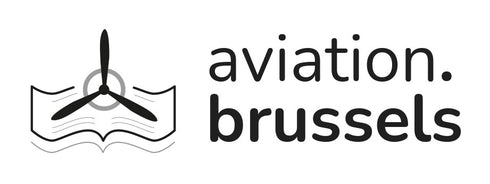ALLIED FIGHTER ACES of World War II


















Prix régulier 60,00 € TTC 6%
Characteristics
| Book cover finish | Canvas finish, Bradel, Hardcover ( square back binding ) |
| Special features | First edition, Slightly damaged dust jacket, Original edition ( O.E. or Or.E ) |
| Condition | Used, very good condition |
| Number of pages | 240 |
| Published date | 1997 |
| Language | English |
| Size | 16 x 24 x 2 cm |
| Author | Mike Spick |
| Editor | Greenhill Books |
Description
PREFACE
In 1939, world democracy was in a pitiable state. ( ... ) A world war was inevitable ; the charge was set, the powder train laid. All that was needed was a spark. This was duly provided on September 1st, 1939, when Germany, having first signed a non - aggression pact with the Soviet Union, invaded Poland.
Pre - war, it was widely accepted that air power would assume a greater importance than it had in the 1914 - 18 conflict, but to what degree was not known for certain. In the event air power was critical to ultimate victory. It hamstrung armies in the field ; reduced war - making capacity at home ; and reduced naval forces to near impotence. But before any of this could be done, air superiority had to be gained.
( ... ) Air superiority was the task of the fighter, and fighters determined the eventual outcome of the entire war. In Western Europe, North Africa, the Mediterranean, the Far East and the Pacific, Allied fighters held the ring when all seemed lost on the ground. Having stemmed the tide, they then led the way back to eventual victory.
( ... ) Many thousands of fighter pilots, of many nations, flew and fought and died in aircraft bearing the roundel of the British and Commonwealth air forces, or the white star of the U.S.A.A.F. and U.S.N. Of these, a mere handful became famous. About five percent of fighter pilots accounted for roughly forty percent of all aerial victories. These were the Aces.
The value of the fighter Aces was incalculable. Throughout recorded History, mankind has needed heroes as an inspiration and an example, and this, together with leadership and tuition, the Aces provided in full measure.
( ... ) The term Ace was first adopted by the French in the First World War, using a five - victory qualification. By contrast, the British decried the Ace system as bad for morale. It was never officially adopted by the British, although this did not prevent successful pilots being decorated, and lionised while on home leave. Consequently, when in 1939 the world was once again plunged into war, the Ace tradition was already there, with records waiting to be broken.
Mike Spick



















